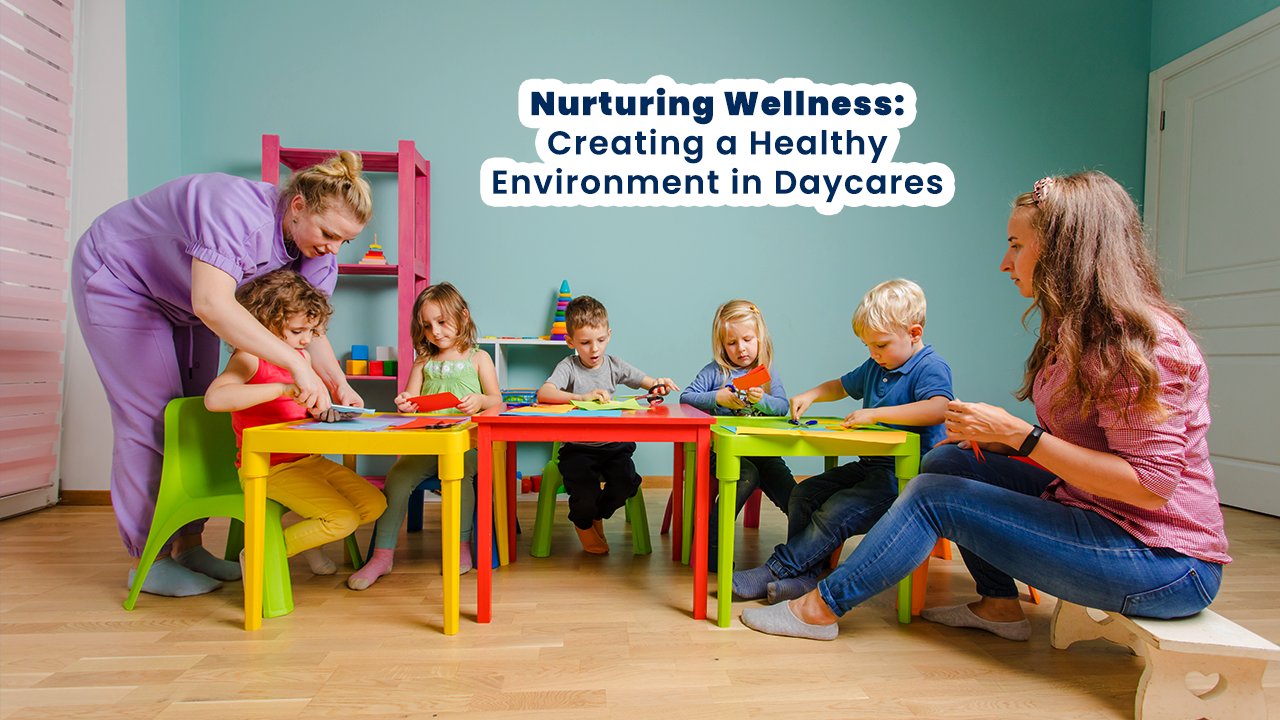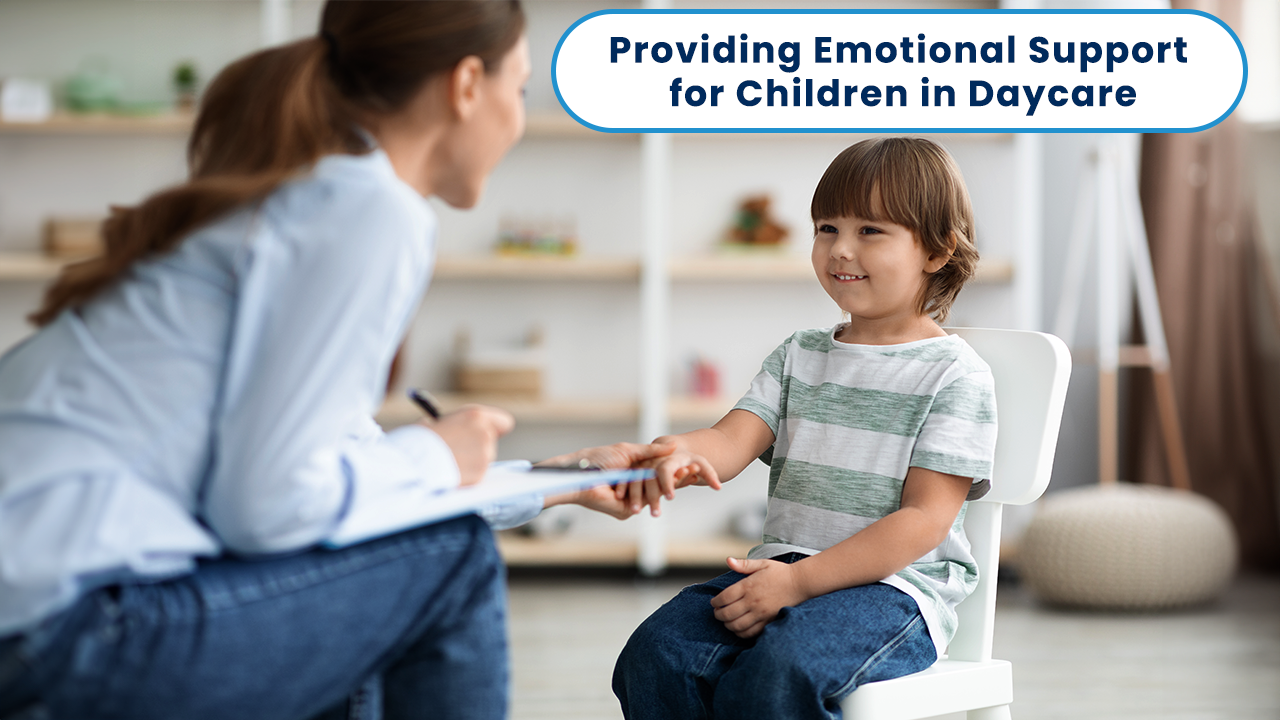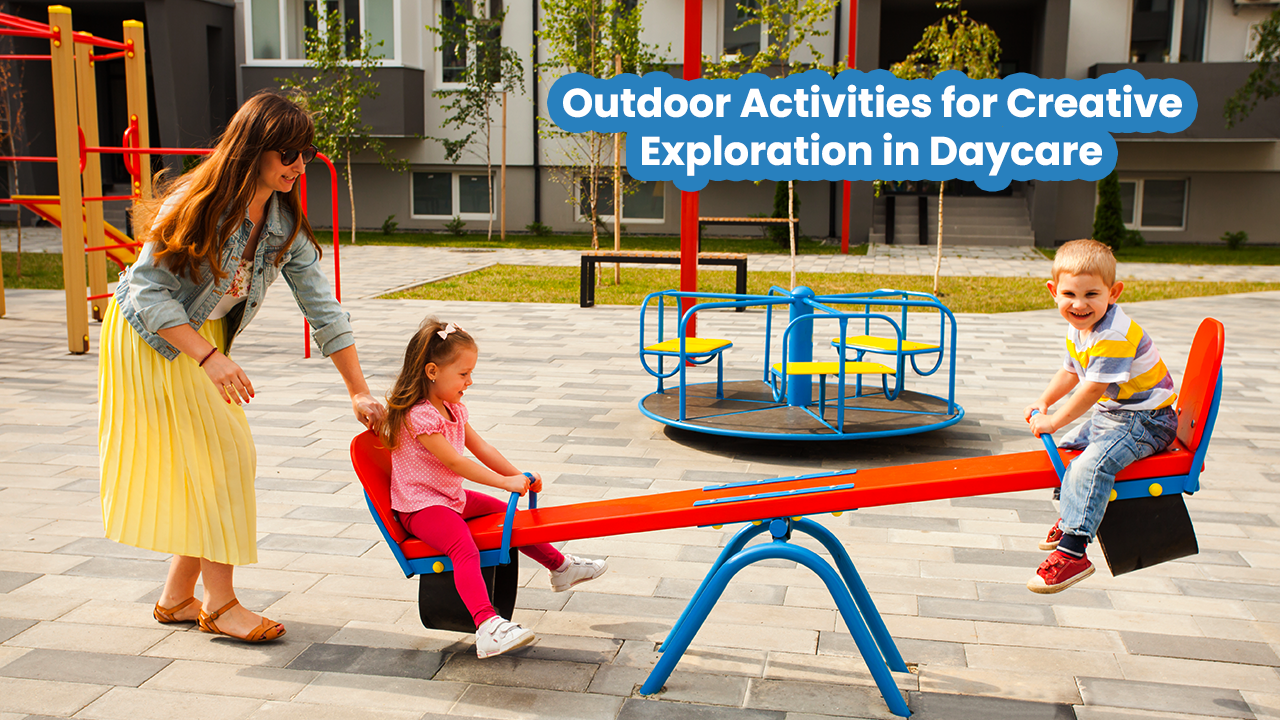
- Creating a Healthy Environment in Daycares: Key Aspects to Explore
- Physical Infrastructure and Safety Measures:
- Hygiene and Cleanliness Practices:
- Nutrition and Meal Planning:
- Emotional Support and Positive Relationships:
- Educational Stimuli and Play Environment:
- Professional Development and Staff Wellness:
- Outdoor Exploration and Nature Integration:
- Mindfulness and Relaxation Techniques:
- Inclusive Practices and Diversity Education:
- Parental Involvement and Workshops:
- Technology Balance and Screen Time Policies:
- Celebrating Milestones and Achievements:
- Health and Safety Education for Children:
- Flexible Schedules and Individualized Care:
- Continuous Evaluation and Improvement:
- Conclusion on Creating a Healthy Environment in Daycares:
Early childhood is a critical time for development, and the environment in which children spend their formative years can significantly impact their well-being. Daycares, as vital extensions of a child’s world, play a central role in creating an atmosphere that nurtures health and growth. Let’s delve into the critical aspects of creating a healthy environment in daycares.
Creating a Healthy Environment in Daycares: Key Aspects to Explore
Physical Infrastructure and Safety Measures:
The foundation of a healthy environment in daycares begins with a well-designed and safe physical space. Adequate lighting, proper ventilation, and well-maintained facilities create a positive atmosphere. Childproofing measures, such as secure gates, rounded furniture edges, and non-toxic materials, ensure the safety of the children. Conducting regular safety inspections and drills for emergencies and having well-defined protocols for accidents or illnesses further emphasizes the commitment to creating a secure environment.
Hygiene and Cleanliness Practices:
Maintaining high hygiene standards is crucial to preventing the spread of illnesses and promoting overall health. Daycare providers should establish and enforce handwashing, diaper changing, and general cleanliness routines. Regular sanitation of toys, surfaces, and common areas helps create a hygienic space for children to explore and play. Additionally, establishing policies for illness prevention, including guidelines for when children should stay home, contributes to the overall health of the daycare community.
Nutrition and Meal Planning:
A well-balanced diet is essential for the growth and development of young children. Daycares should prioritize providing nutritious meals and snacks that meet dietary guidelines. Accommodating dietary restrictions and allergies ensures that every child receives appropriate nourishment. Involving parents in meal planning, sharing nutritional information, and promoting healthy eating habits through educational activities contributes to a holistic nutrition approach in the daycare setting.
Emotional Support and Positive Relationships:
Children’s emotional well-being is tied to their relationships with caregivers and peers. Daycare providers should aim at creating a healthy environment in daycares, building solid connections and offering emotional support. Open communication with parents through updates and feedback ensures a unified approach to supporting a child’s emotional development.
Educational Stimuli and Play Environment:
Daycares are not just places for supervision; they are also valuable learning environments. Incorporating age-appropriate educational stimuli, such as books, educational toys, and creative activities, stimulates cognitive development. Balancing free play with structured learning activities allows children to explore, learn, and develop essential skills. Creating play areas that encourage physical activity, imagination, and social interaction contributes to the overall well-being of children.
Professional Development and Staff Wellness:
The well-being of daycare staff is integral to the quality of care they provide. Ongoing professional development programs ensure that staff members stay updated on best practices in childcare, child development, and safety measures.
Additionally, promoting a healthy work-life balance and providing resources for managing stress and emotional challenges contribute to the overall wellness of the daycare community. Daycare owners can further enhance their operations’ efficiency and staff’s well-being by adopting daycare management and accounting solutions like 360Daycare.
Outdoor Exploration and Nature Integration:
Incorporating outdoor play and nature-based activities into the daily routine enhances physical health and stimulates cognitive development. Outdoor spaces provide opportunities for gross motor skill development, exposure to fresh air, and an appreciation for nature. Creating a nature-rich environment, such as a small garden or outdoor play area, allows children to explore and connect with the natural world.
Mindfulness and Relaxation Techniques:
Introducing age-appropriate mindfulness and relaxation techniques can support emotional well-being. Simple activities like deep breathing exercises, guided relaxation, or short meditation sessions can help children develop self-regulation skills. These practices contribute to a calm and focused atmosphere and lay the foundation for stress management later in life.
Inclusive Practices and Diversity Education:
Fostering a healthy environment involves creating an inclusive space where all children feel valued and respected. Incorporate materials and activities that celebrate diversity, teach empathy, and promote understanding of different cultures and backgrounds. This supports social development and contributes to a positive and harmonious daycare community.
Parental Involvement and Workshops:
Engaging parents in the daycare community is essential for holistic child development. Organize workshops on nutrition, positive discipline, and child development. Regular parent-teacher meetings and open communication channels provide insights into a child’s home environment and enable a collaborative approach to addressing their needs.
Technology Balance and Screen Time Policies:
In a digital age, establishing guidelines for technology use is crucial. Implementing age-appropriate screen time policies and ensuring digital devices are used as educational tools rather than substitutes for human interaction contribute to a well-rounded approach to child development. You can learn more about the impact of screen time on kids here.
Celebrating Milestones and Achievements:
Recognizing and celebrating each child’s milestones and achievements, no matter how small boosts self-esteem and reinforces positive behavior. Create a system for acknowledging accomplishments, whether it’s through a visual display of artwork or a monthly celebration that involves both children and parents. This positive reinforcement contributes to a nurturing and supportive environment.
Health and Safety Education for Children:
Implement age-appropriate health and safety education within the daycare curriculum. Teach children basic hygiene practices, the importance of nutrition, and safety rules through interactive activities and games. Empowering children with this knowledge enhances their well-being and instills lifelong habits.
Flexible Schedules and Individualized Care:
Recognize and cater to each child’s needs by providing a flexible schedule that accommodates various nap times, feeding preferences, and developmental milestones. This personalized approach ensures that each child receives the attention and care they require for optimal development.
Continuous Evaluation and Improvement:
Establish a system for continuous evaluation of daycare policies and practices. Seek feedback from parents, caregivers, and staff regularly to identify areas for improvement. This commitment to ongoing assessment and refinement demonstrates a dedication to providing the highest care standard for the daycare’s children.
Conclusion on Creating a Healthy Environment in Daycares:
In the journey of nurturing wellness, daycares play a pivotal role in shaping the foundation of a child’s physical, emotional, and cognitive health. By prioritizing these aspects for creating a healthy environment in daycares that promotes overall well-being, daycares not only fulfill their role as childcare providers but also become invaluable partners in the holistic development of children.


